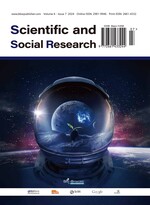Abstract
There are persisting issues in the ineffective teaching of mechanics laboratory courses within vocational education systems. Hence, this study aimed to investigate the utility of finite element analysis (FEA) for developing instructional resources. Solid and hollow shaft models were numerically analyzed to examine their stress distributions and deformation patterns. This digitized content was incorporated into the existing curriculum. An experimental teaching activity was organized and evaluated using questionnaires and instructor-student exchanges. Results indicated that FEA-based visualization significantly improved student comprehension of stress distributions and deformation modes along the shaft. Overall satisfaction with the teaching experiment was 30 out of 33 participants, though this innovative approach enhanced interest, it lacked in fully facilitating positive discussions. In summary, FEA can effectively augment traditional torsion experiment instruction by providing clear, engaging visual representations. Further case studies merit exploration and practice by educational researchers to realize the full potential of FEA for mechanics laboratory pedagogy.
References
Deliktas B, 2011, Computer Technology for Enhancing Teaching and Learning Modules of Engineering Mechanics. Computer Applications in Engineering Education, 19(3): 421–432. https://doi.org/10.1002/cae.20321
Wang S, 2022, The Current Situation and Teaching Exploration of Engineering Mechanics in Vocational Colleges. Scientific and Social Research, 4(3): 6–12. https://doi.org/10.26689/ssr.v4i3.3695
Wang S, 2023, Developing and Implementing Effective E-learning Software for Mechanics: A Study of FET and C#. 2023 5th International Workshop on Artificial Intelligence and Education (WAIE), Tokyo, 125–130. https://doi.org/10.1109/WAIE60568.2023.00030
Bae E, Prasad PWC, Alsadoon A, et al., 2015, Framework to Improve Delivery Methods in Higher Education through Online Learning. 2015 IEEE 7th International Conference on Engineering Education (ICEED), Kanazawa, 130–134. https://doi.org/10.1109/ICEED.2015.7451506
Wang S, Bai P, Wang X, et al., 2023 Development and Application of E-Education Resources: Integrating PBL and FET to Improve the Teaching Quality of Mechanics Classroom. 2023 7th International Conference on E-Society, E-Education and E-Technology (ESET), Chiayi, 62–67. https://doi.org/10.1109/ESET60968.2023.00017
Wang S, 2023, Enhancing Problem-based Learning in Vocational Colleges: The Role of Digital Materials Developed by FET. 2023 International Conference on Computer Applications Technology (CCAT), Guiyang, 260–265. https://doi.org/10.1109/CCAT59108.2023.00055
Liu Z, Xu G, Wang S, 2024, Development and Application of E-Learning Software Aimed at Enhancing Learners’ Motivation. 2024 13th International Conference on Educational and Information Technology (ICEIT), Chengdu, 117–123. https://doi.org/10.1109/ICEIT61397.2024.10540721
Wang S, 2023, Research on Development and Application of Digital Resources for Mechanics Course. 2023 5th International Workshop on Artificial Intelligence and Education (WAIE), Tokyo, 106–112. https://doi.org/10.1109/WAIE60568.2023.00027
